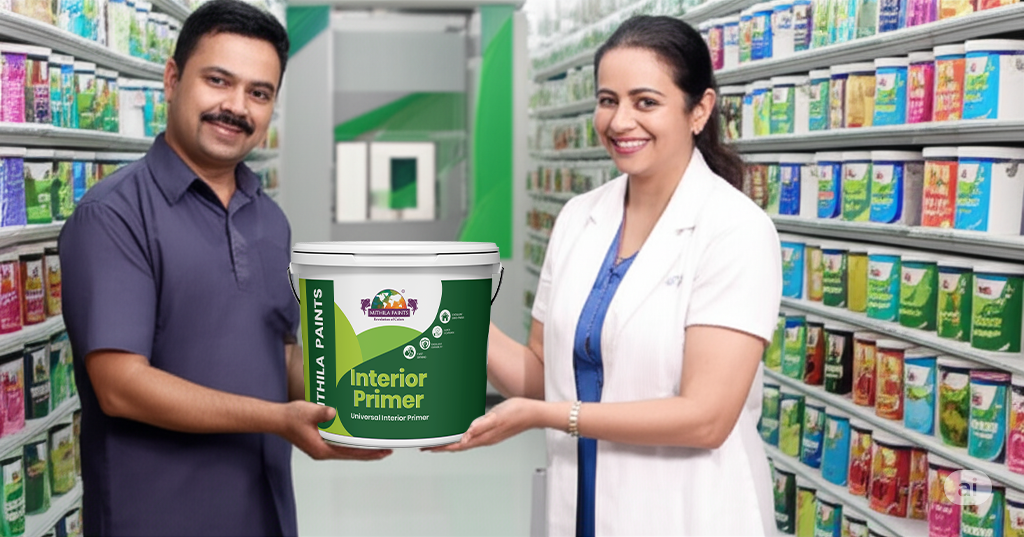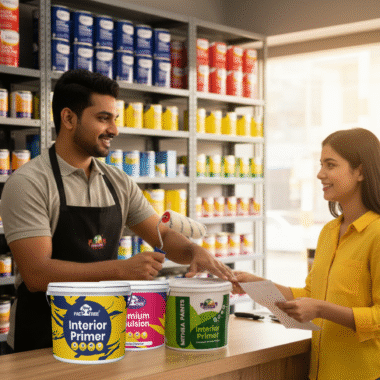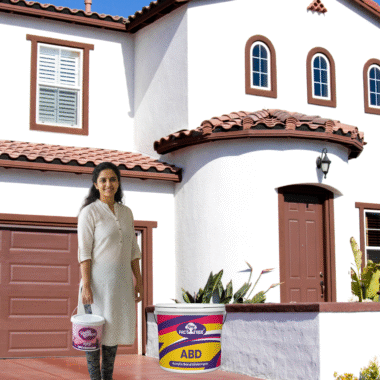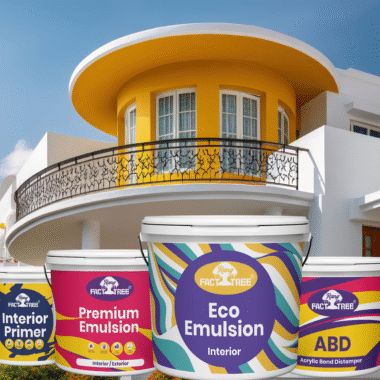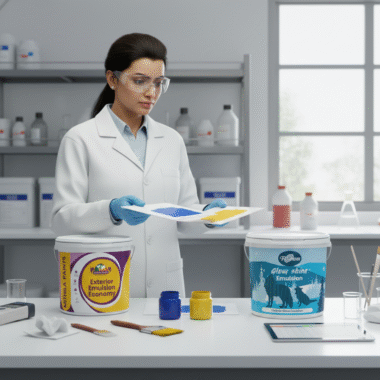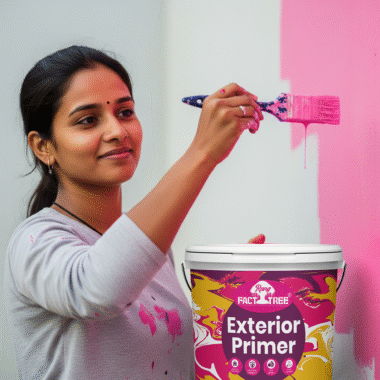When it comes to achieving long lasting paints and a flawless finish, one of the most overlooked yet essential steps is priming. Many people focus solely on the topcoat color and finish, forgetting that the true durability of paint begins much earlier in the process. A high-quality wholesale primer is the foundation that ensures your paint job stands the test of time, resisting peeling, cracking, and fading.
We will explore everything you need to know about primer—what it is, why it’s important, the different types available, and how to apply it correctly for professional, long-lasting results.

What is Primer and Why is it Important?
Primer is a preparatory coating applied before painting to create a stable surface that improves the adhesion of paint. While the final coat adds beauty and color, primer acts as the backbone of the entire paint system. It ensures that the paint grips the surface firmly and stays vibrant for years.
Without a primer, the paint might soak unevenly into the surface, leading to patchy coverage, reduced durability, and poor color retention. With the right primer, however, you can prevent common painting problems such as:
- Uneven paint absorption
- Early peeling or blistering
- Stains bleeding through the topcoat
- Difficulty in achieving the desired finish
Benefits of Using a High-Quality Wholesale Primer
Investing in a premium wholesale primer has multiple benefits:
1. Superior Adhesion
Primer acts as a bonding agent between the surface and the paint. It ensures that paint sticks firmly, preventing peeling or flaking even in challenging environments.
2. Moisture Resistance
Surfaces exposed to humidity or dampness need protection from water damage. A good primer seals the surface, reducing the risk of moisture penetration and paint failure.
3. Improved Surface Uniformity
Primer creates a smooth, consistent surface, helping the final coat look even and vibrant. This is especially important when painting over porous materials like wood, plaster, or concrete.
4. Stain Blocking
Certain stains—like watermarks, smoke damage, or rust—can bleed through paint. Primer locks them in, preventing discoloration of the topcoat.
5. Cost-Effectiveness
Using primer reduces the number of paint coats needed, saving time and money in the long run. Wholesale primer is especially cost-efficient for contractors, builders, and large-scale projects.
Types of Primer
Different surfaces require different primers. Understanding which one to use ensures optimal results.
1. Water-Based Primer
Ideal for drywall, softwoods, and masonry. It dries quickly, has low odor, and is easy to clean with water.
2. Oil-Based Primer
Excellent for blocking stains and sealing porous surfaces. It provides strong adhesion but takes longer to dry.
3. Stain-Blocking Primer
Specially formulated to cover stubborn stains and prevent them from showing through the topcoat.
4. Multi-Surface Primer
Versatile primer suitable for a wide range of surfaces, including metal, wood, plaster, and concrete.
5. Masonry Primer
Designed for brick, concrete, and stone, offering resistance to alkali and moisture.

How to Apply Primer for Long-Lasting Paints
A primer’s performance depends on proper application. Here’s a step-by-step guide to ensure your wholesale primer works effectively:
- Surface Preparation
- Clean the surface thoroughly to remove dust, grease, or loose material.
- Sand rough areas for better adhesion.
- Repair cracks or holes before priming.
- Choosing the Right Primer
- Match the primer type to the surface and painting conditions.
- Mixing the Primer
- Stir well before use to ensure uniform consistency.
- Application Method
- Use a brush, roller, or spray, depending on the surface size.
- Apply in thin, even coats for the best finish.
- Drying Time
- Allow the primer to dry completely before applying paint. Drying times vary depending on the type of primer used.
- Sanding Between Coats (Optional)
- For ultra-smooth results, lightly sand the primed surface before painting.
Wholesale Primer for Contractors and Large Projects
Buying primer in wholesale quantities is ideal for construction companies, contractors, and painters working on large projects. Bulk purchasing not only reduces the per-unit cost but also ensures consistent quality across the entire project. Whether it’s residential housing, commercial complexes, or industrial buildings, wholesale primer helps maintain uniformity and efficiency.
Common Mistakes to Avoid When Using Primer
Even the best primer won’t deliver if applied incorrectly. Here are common mistakes to avoid:
- Skipping Primer on New Surfaces – Bare wood, drywall, or masonry needs primer before painting.
- Not Matching Primer to Paint – Water-based paint works best over water-based primer, and oil-based paint works best over oil-based primer.
- Applying Too Thickly – Thick layers take longer to dry and may cause unevenness.
- Rushing Drying Time – Allow adequate drying time before painting.
Long-Lasting Results Start with Quality Primer
A good paint job isn’t just about choosing the perfect color—it’s about ensuring it lasts for years without fading, cracking, or peeling. The right wholesale primer forms a protective foundation, extending the life of your paint and enhancing its beauty.
By taking the time to choose a high-quality primer and applying it properly, you’re investing in both the appearance and durability of your project. Whether you are a homeowner tackling a DIY project or a contractor managing large-scale works, never underestimate the power of a well-applied primer.

Conclusion
Long lasting paints are not just the result of premium-quality topcoats—they are built on a strong foundation of primer. A carefully selected wholesale primer will protect the surface, improve paint adhesion, and ensure a vibrant, even finish for years to come.
If you want your paint to withstand the test of time, start with the right primer. Remember, every masterpiece begins with a strong base.

